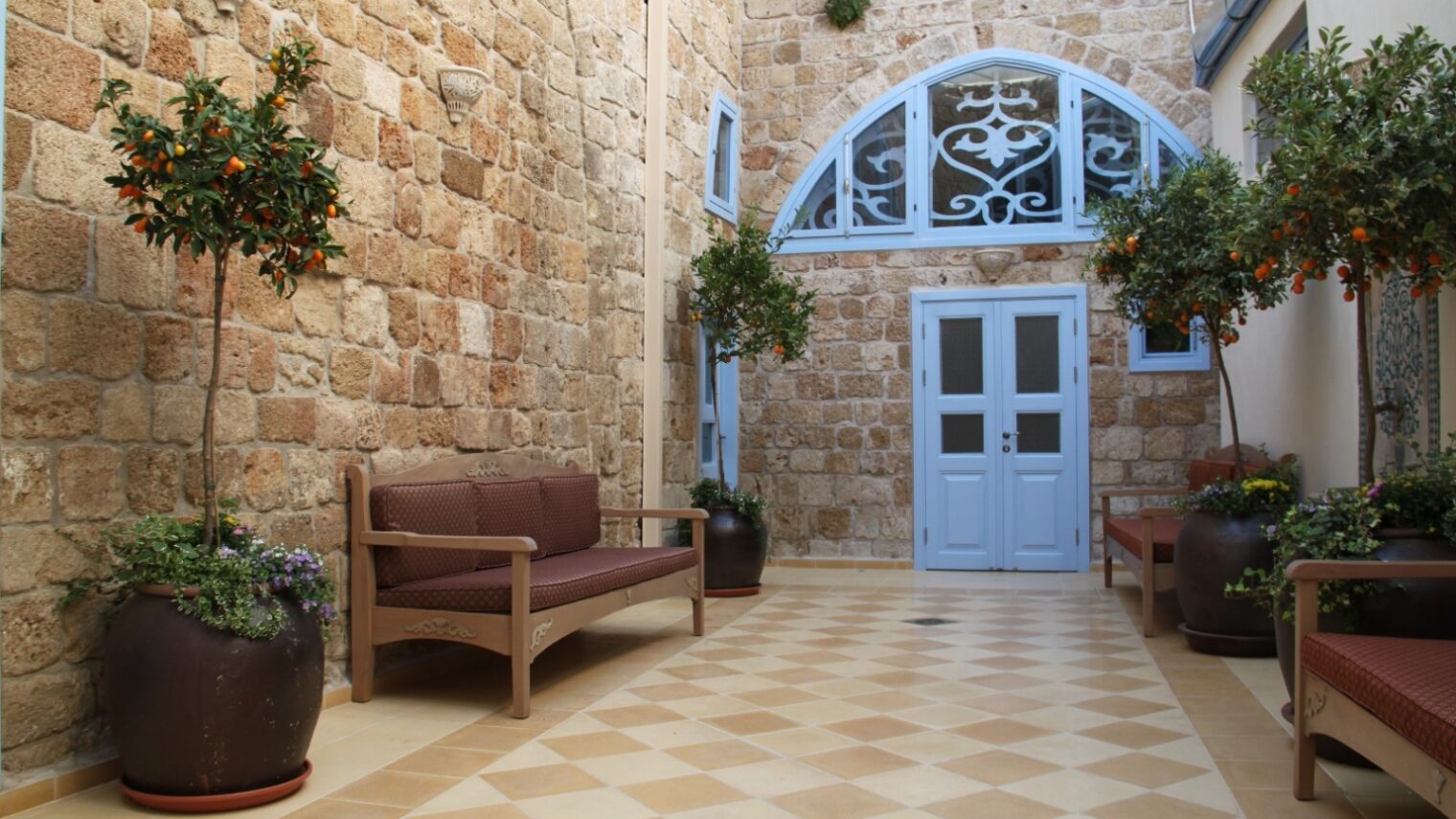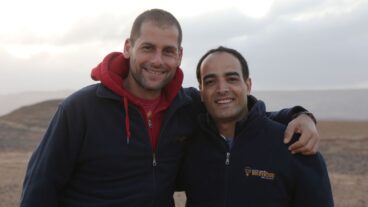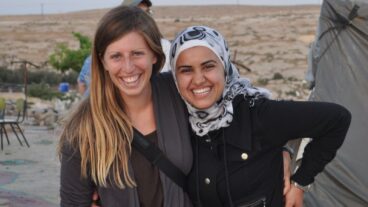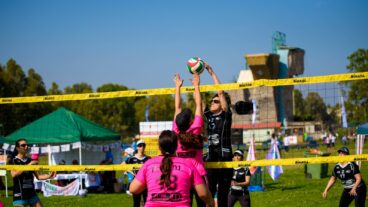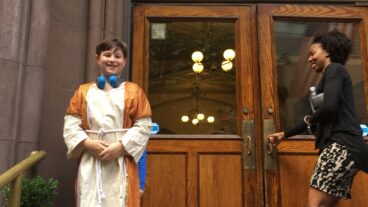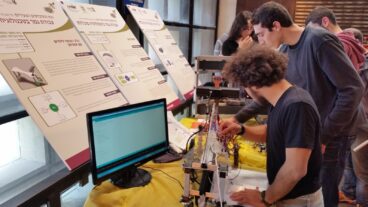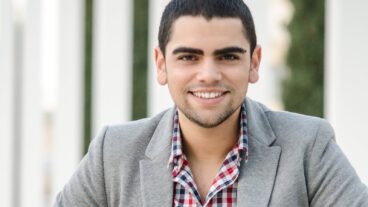Essential Question: How can the arts cross boundaries?
The timeworn stone house was dilapidated and neglected. Yet when award-winning Israeli novelist and translator Evan Fallenberg saw photos of the structure two years ago on an Israeli real-estate website, he went to visit and decided to purchase and restore it.
Now, that centuries-old Ottoman building in the historic Old City of Acre (Akko) on Israel’s northern seacoast is embarking on a second life as Arabesque: An Arts and Residency Center.
Fallenberg will have plenty of company in the 300-square-meter renovated house. It includes three residential units that can be rented by short- or long-term vacationers, and a great room intended for literary, artistic, musical and culinary events in English, Hebrew and Arabic.
One of the reasons he chose the name “Arabesque,” after months of deliberation, is that it works in all three languages.
Fallenberg also envisions Arabesque as an international retreat destination for writers, translators and other artists.
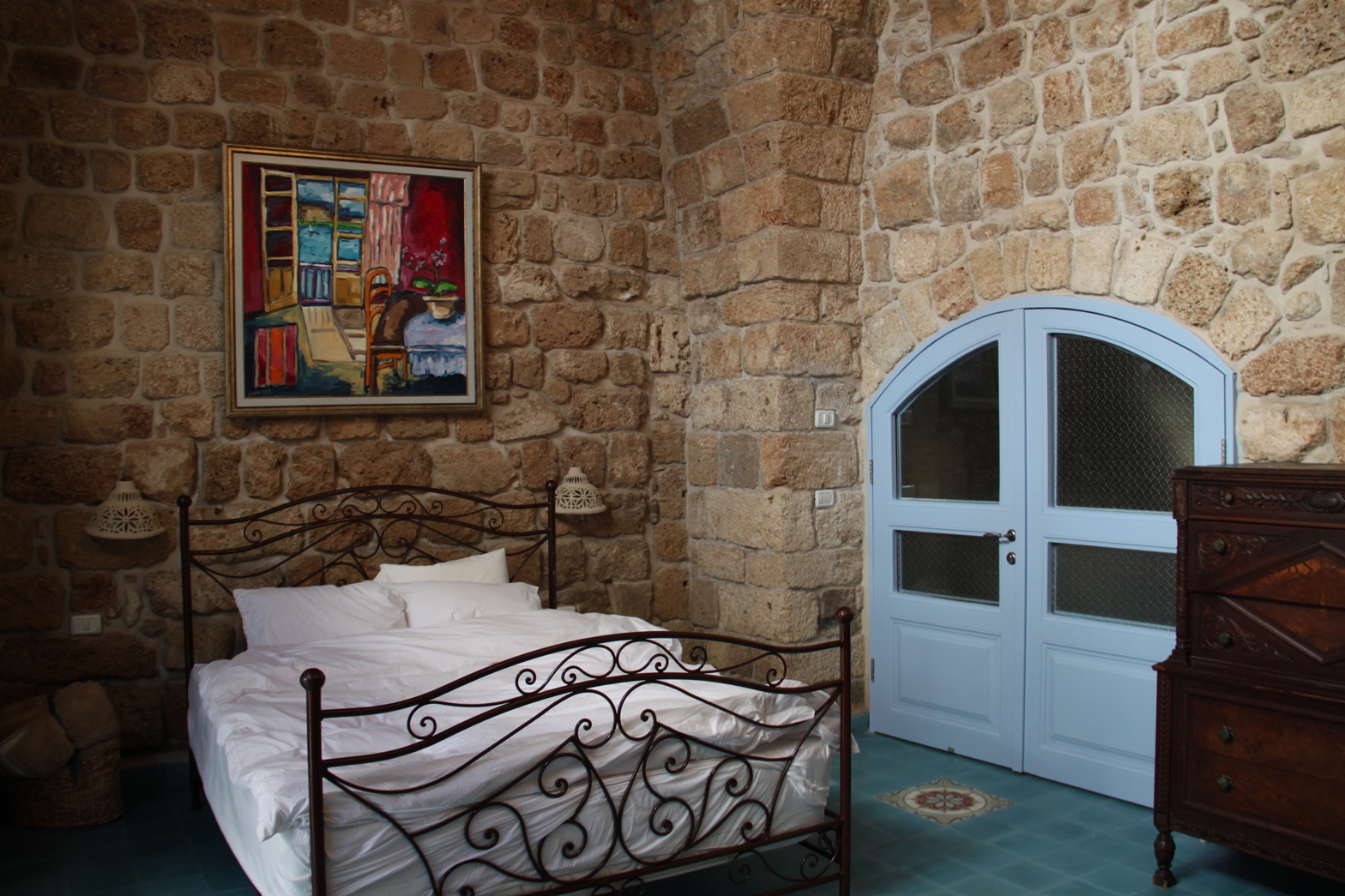
Landmark of coexistence
AcrexAcre – https://www.israel21c.org/postcard-from-israel-akko-2/’s Old City is inhabited almost exclusively by Arab Muslims.
“Being in a completely Muslim neighborhood intrigued me,” Fallenberg tells ISRAEL21c. “I live in a country where Jews and Muslims are still segregated in so many ways, and I had the feeling for a long time that by not being part of the solution I was being part of the problem.”
He intentionally chose a mix of local Muslims, Christians and Jews to restore the house to glory. In the entryway he hung photographs of those who contributed: architect, stone masons, master tiler, father-son carpenters, a brother and sister in Tel Aviv who loaned their antique furniture collection, and others.
“It has been a labor of love for every single person working on it,” says Fallenberg, an American citizen who has lived in Israel for some 30 years. He raised some funds for the renovation via a crowdfunding campaign and dug the rest out of his own pocket.
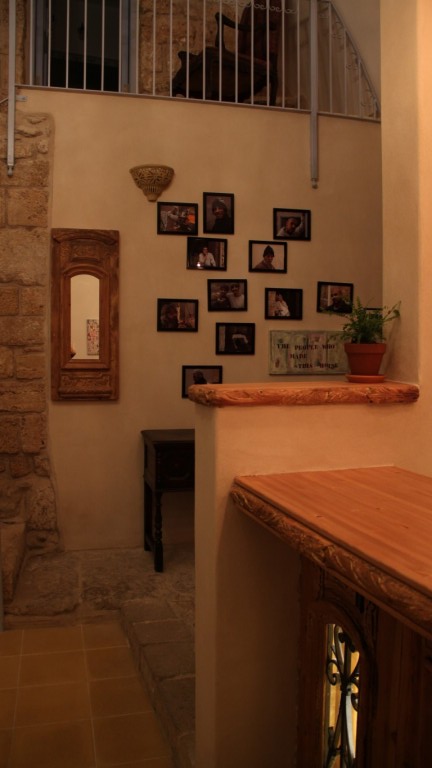
The performance artists he intends to invite will represent the cultural diversity of Israel, as does the management of Arabesque.
“Although dozens of people have been involved in turning Arabesque into reality, four of us will intimately be involved in its daily operations: my son Micha and our neighbor Maharan will be co-managers; Maharan’s mother, Khayet, will serve as house mother; and I will be responsible for the arts programming,” Fallenberg explains.
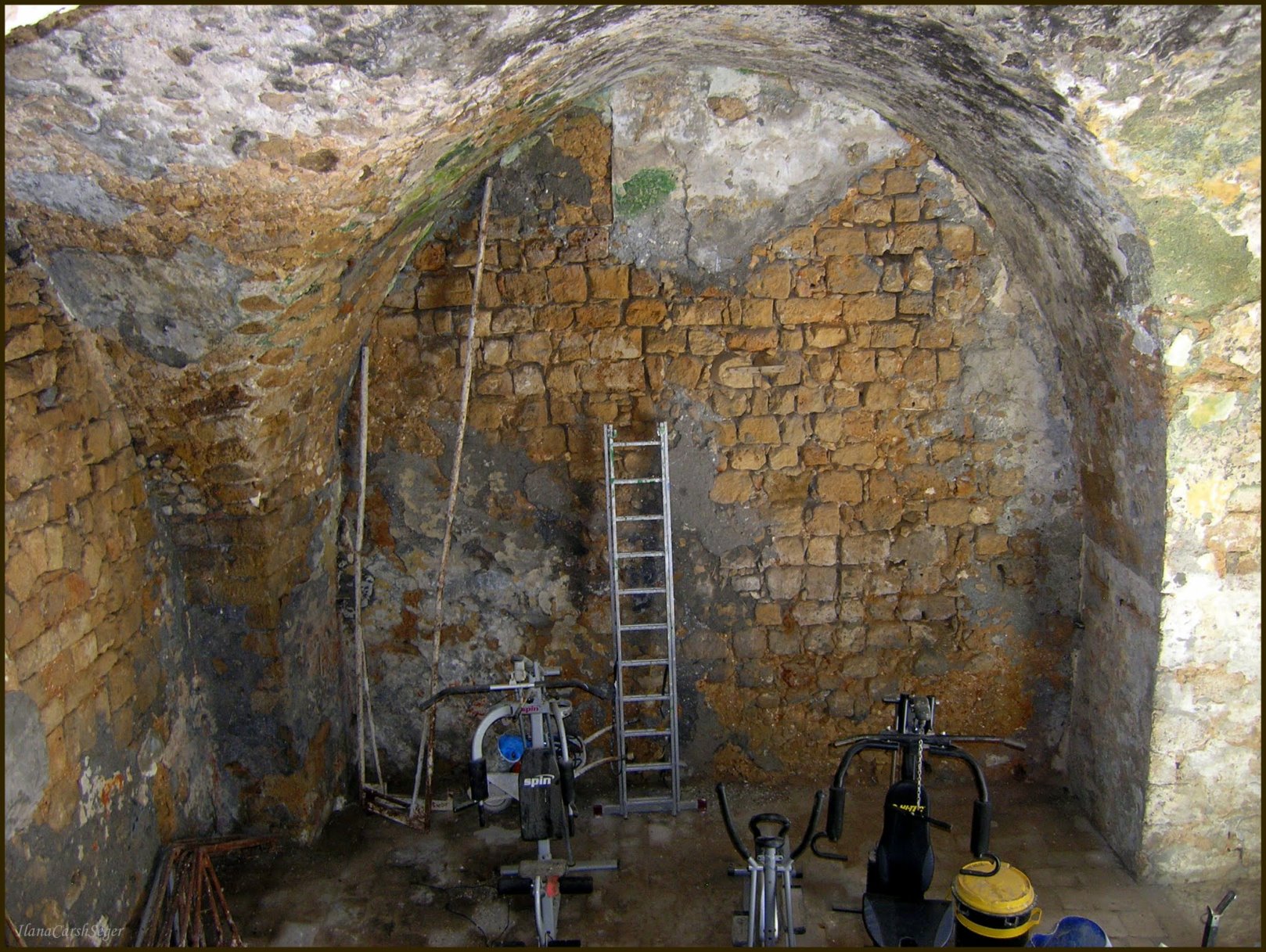
Several months ago, on a Friday afternoon amid a rash of stabbing attacks by Arabs across Israel, he and his son were invited for lunch by the Arab neighbors of Arabesque.
“The father of the family, Muhammad, asked his daughter to take a picture and send it to the world to show Jews sitting in the house of Muslims,” says Fallenberg. “That struck me on so many levels. I had come to Acre that day with no fear whatsoever. I feel at home there. People know me and they know my house.”
Stepping out of regular life
Acre, a UNESCO World Heritage site, is one of the world’s oldest continually inhabited cities and host to dozens of civilizations as well as legendary visitors including Alexander the Great, Cleopatra, Marco Polo and Napoleon.
“It is a gorgeous old city with stonework alleyways, right by the sea and on a train line,” says Fallenberg. “It completely speaks to me.”
The teacher of creative writing and literary translation at several institutions around the world has done writing residencies in New Hampshire, Vermont and Switzerland. “These three places were all quite secluded, whereas Arabesque is in the heart of the Old City without a blade of grass for meters around.”
But he thinks fellow artists will find inspiration in the building’s stone walls, artistic tilework, tall vaulted ceilings, arches with woodwork arabesques, courtyard, and great room with a grand piano.
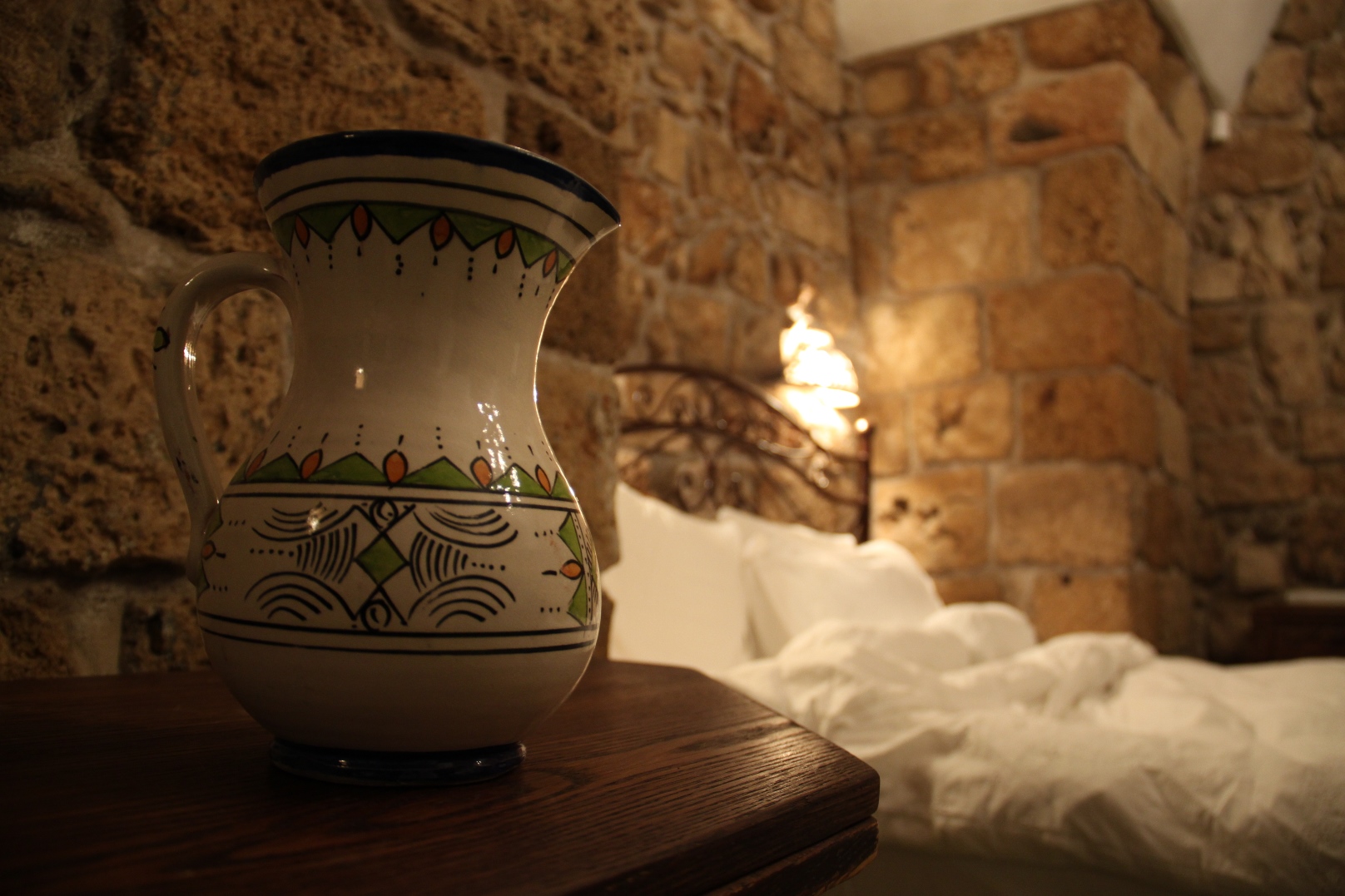
Outside there’s the old marketplace, the Mediterranean Sea, coffee shops and bazaars, a Turkish bath, and a branch of the famous Baha’i Gardens.
“There is nothing that compares to an opportunity to step out of regular life and focus on your art,” Fallenberg says. “You produce more and better work.”
In addition to programming such as poetry and translation slams, concerts, master classes, art exhibitions, booksurfing groups and ethnic culinary demonstrations, Fallenberg plans to host an annual month-long conversational Arabic immersion program.
“I don’t want to think of culture as religion-based,” says Fallenberg. “The problem is more one of language. I plan on having events that are going to be of interest to everyone, and I’m going to have master writing classes in English, Hebrew and Arabic.”
He sees Arabesque as a safe and attractive meeting point on the road to peace. “I’ve gotten the most remarkable responses about how inspiring this is, how it gives people hope,” says Fallenberg.
For more information, click here.




